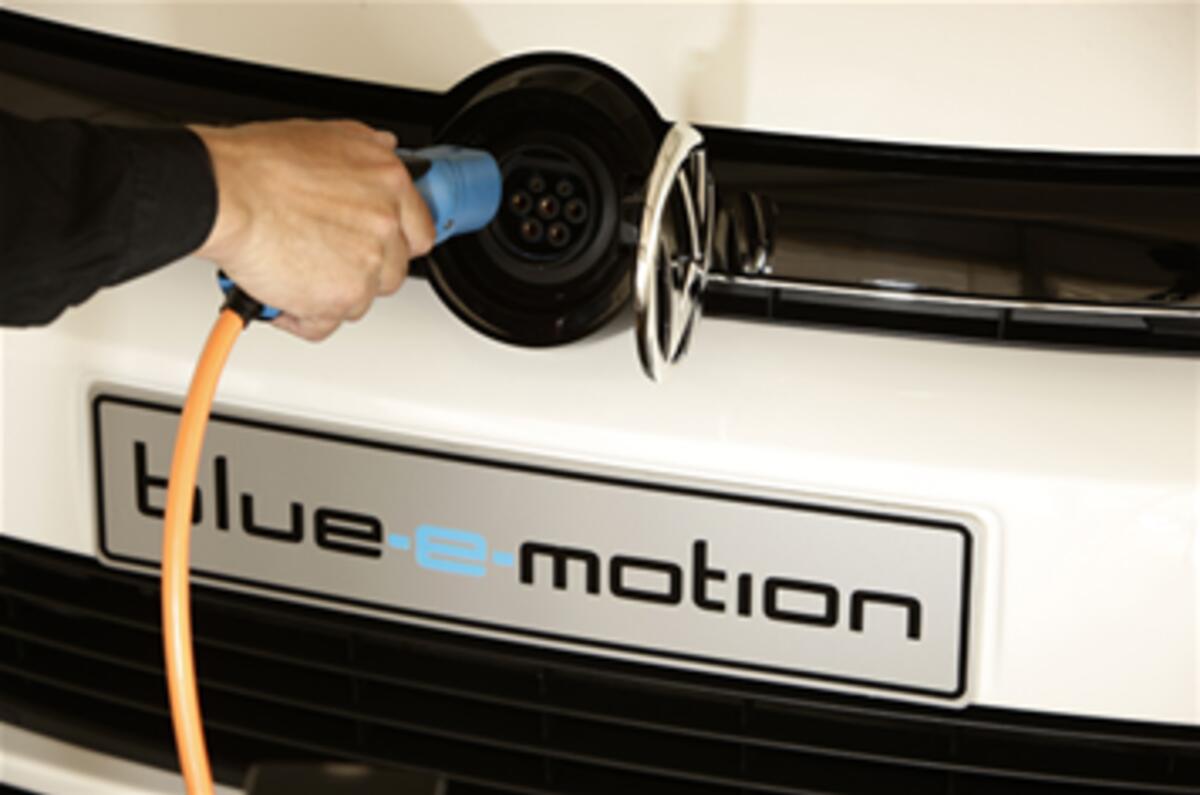Electric cars will not be viable as everyday transport for at least 10 years and further research needs to be undertaken into battery life and weight, according to a new report.
The Institution of Engineering Technology’s (E&T) report claims long-term limitations of battery technology will cap electric cars’ range at 100 miles and fast charging points will damage battery life.
It has called on the government to instead invest in high efficiency diesels and hybrids instead.
Highlighting the current limitations of electric cars, E&T said an average VW Golf could travel 375 miles on a single tank of fuel in mixed driving conditions at 70mph. To undertake the same journey in an EV, the batteries would weigh in excess of 1.5 tonnes and the car would cost more than £100,000.
E&T’s research reveals that although breakthroughs on the cost of batteries will be achieved within 10 years, similar progress in reducing their weight will not happen. It also believes drivers will not be satisfied with the performance of batteries for at least 10 years.
It also says that to achieve a respectable life from lithium-ion batteries, they should not run from full to empty and should be kept at between 20-80 per cent of their charge. This has knock-on effects to the range.
E&T also says that constant fast charging will damage battery life and the impact of these fast charging points on battery life has yet to be looked into.
E&T editor in chief Dickon Ross said: “Some of the performance improvement claims being suggested are likely to stay pure fantasy for the foreseeable future.
“While we believe electric cars overall are a good idea, particularly for short-range commutes, there’s a need for more honesty on whether they can really be the solution to our transport and environmental needs in the mid- to long-term.
“Do people really have to invest in more than one car, and all the resources they demand, to take care of commuting and family holidays? We need to encourage alternative solutions.”





Join the debate
Add your comment
Re: 'More research needed on EVs'
You rather make my point for me- these things are useless for most normal people.
BTW Ad hominem remarks redound badly on the poster.
Re: 'More research needed on EVs'
Jkirkebo, you makes some really valid points, really good ones. At this point you'd expect a reply to say "However...." but all I can add is that we really need to know more about the total power required on all fuels, be it petrol, diesel, electric, hydrogen etc.
A couple of years back I tried to find out information on global warming, I wanted the raw data that was being used. But all you can find is the graphs we've all seen, not the source data sets. Likewise with the EVs Vs Petrol/Diesel we're not really seeing the facts, rather someone opinion.
Again, got to say very good post!
Re: 'More research needed on EVs'
Apples an oranges. If you want to include the CO2-emissions from producing the electricity, you also have to include the CO2-emissions from producing petrol or diesel too.
The fact is, it takes 3kWh to refine a litre of diesel or petrol. This is just for the refinement process, in addition you have to get the oil out of the ground, transport it to the refinery and then the refined product to the gas stations.
But let's focus on the 3kWh for refinement for now. The funny thing about this is that an EV will go further on 3kWh of electriciy than a petrol car on one litre of petrol. I assume the electricity used in the refineries come from the same source as the electricity for charging EVs ;)
Another conclusion we can draw from this is that if everyone bought EVs we do not have to expand the electric grid, just shut down the refineries and you'll have all the electricity you need.
Norways refineries consume 8.7TWh per year, if all cars and trucks was electric they would consume about 6TWh...